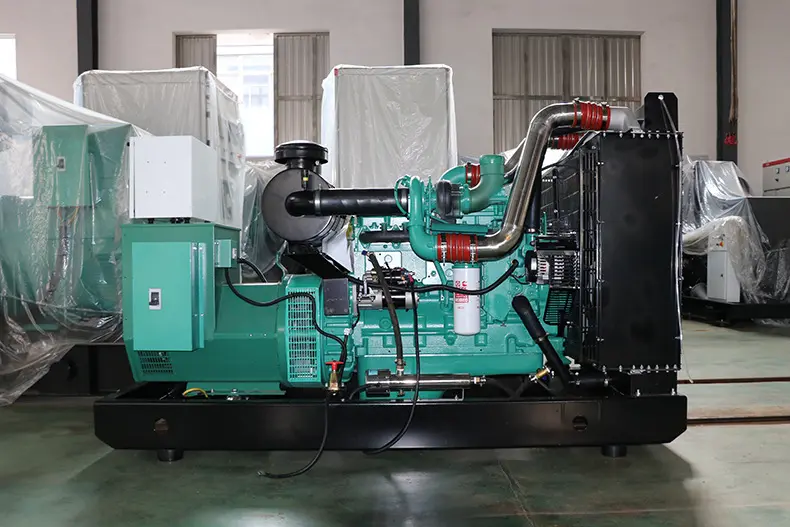Introduction
In today's modern world, where electricity is a necessity for both residential and commercial purposes, having a reliable power source is crucial. One of the most popular choices for providing backup power is a diesel generator. Diesel generators are known for their durability, efficiency, and low maintenance requirements, making them a preferred option for many users. In this article, we will delve into the world of diesel generators, exploring their benefits, features, and tips for ensuring low maintenance.
Chapter 1: Understanding Diesel Generators
Diesel generators are a type of generator set that uses a diesel engine to convert mechanical energy into electrical energy. These generators are commonly used as backup power sources in locations where a stable power supply is not readily available, such as remote areas, construction sites, and industrial facilities.
One of the key advantages of diesel generators is their fuel efficiency. Diesel fuel is more energy-dense than gasoline, meaning that diesel generators can produce more power for the same amount of fuel. This makes diesel generators a cost-effective option for long-term use, as they can provide power for extended periods without needing frequent refueling.
Another benefit of diesel generators is their durability and reliability. Diesel engines are known for their robust construction and ability to withstand heavy use and harsh conditions. This makes diesel generators ideal for use in demanding environments where continuous power is essential.
Chapter 2: Benefits of Diesel Generators
1. Lower fuel consumption: Diesel generators are more fuel-efficient compared to gasoline generators, resulting in lower fuel costs over time.
2. Longer lifespan: Diesel engines are built to last, with proper maintenance, a diesel generator can provide reliable power for many years.
3. Greater power output: Diesel generators typically have a higher power output compared to gasoline generators of the same size, making them suitable for applications that require a larger amount of power.
4. Lower maintenance requirements: Diesel generators require less maintenance compared to other types of generators, reducing downtime and overall operating costs.
5. Versatility: Diesel generators can be used in a wide range of applications, from residential backup power to industrial power generation, making them a versatile option for many users.
Chapter 3: Features of Diesel Generators

1. Engine: The heart of a diesel generator is its engine, which converts diesel fuel into mechanical energy. Diesel engines are known for their reliability, durability, and efficiency, making them a key feature of diesel generators.
2. Alternator: The alternator is responsible for converting the mechanical energy generated by the engine into electrical energy. High-quality alternators are essential for ensuring a stable power output from the generator.
3. Cooling system: Diesel engines generate a significant amount of heat during operation, so an effective cooling system is crucial for preventing overheating and ensuring optimal performance.
4. Control panel: The control panel of a diesel generator houses the various controls and indicators that allow users to monitor and manage the generator's operation. A user-friendly control panel is essential for easy operation and maintenance of the generator.
5. Enclosure: Many diesel generators come with an enclosure that helps to protect the generator from the elements and reduce noise levels during operation. Enclosures can vary in design and material, with options available for both indoor and outdoor use.
Chapter 4: Tips for Low Maintenance of Diesel Generators
1. Regular servicing: One of the most important aspects of maintaining a diesel generator is to schedule regular servicing by qualified technicians. Regular maintenance tasks include checking and changing the oil, filters, and coolant, as well as inspecting the fuel system and electrical components.
2. Keep it clean: Keeping the diesel generator clean and free from debris is essential for preventing overheating and ensuring optimal performance. Regularly clean the exterior of the generator, as well as the cooling system, air filters, and exhaust system.
3. Monitor fuel quality: Diesel fuel can degrade over time, leading to the formation of sludge and contaminants that can damage the engine. To prevent fuel-related issues, it is important to use high-quality fuel and store it properly in clean, airtight containers.
4. Load testing: Regularly conducting load tests on the diesel generator helps to ensure that it can handle the required power output when needed. 500kw diesel generator helps to identify any potential issues with the generator's performance before they escalate into major problems.
5. Keep a maintenance log: Maintaining a detailed log of all maintenance activities, repairs, and inspections performed on the diesel generator can help to track its performance over time and identify any recurring issues. A maintenance log can also be useful for scheduling future maintenance tasks and ensuring the generator's long-term reliability.
Conclusion
Diesel generators are a reliable and efficient choice for providing backup power in a wide range of applications. Their low maintenance requirements, durability, and fuel efficiency make them a popular option for users looking for a cost-effective and dependable power source. By understanding the key features and benefits of diesel generators and following best practices for maintenance, users can ensure that their generators perform optimally and provide reliable power when needed.
